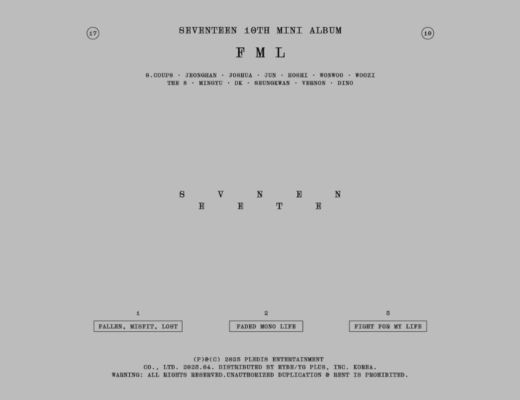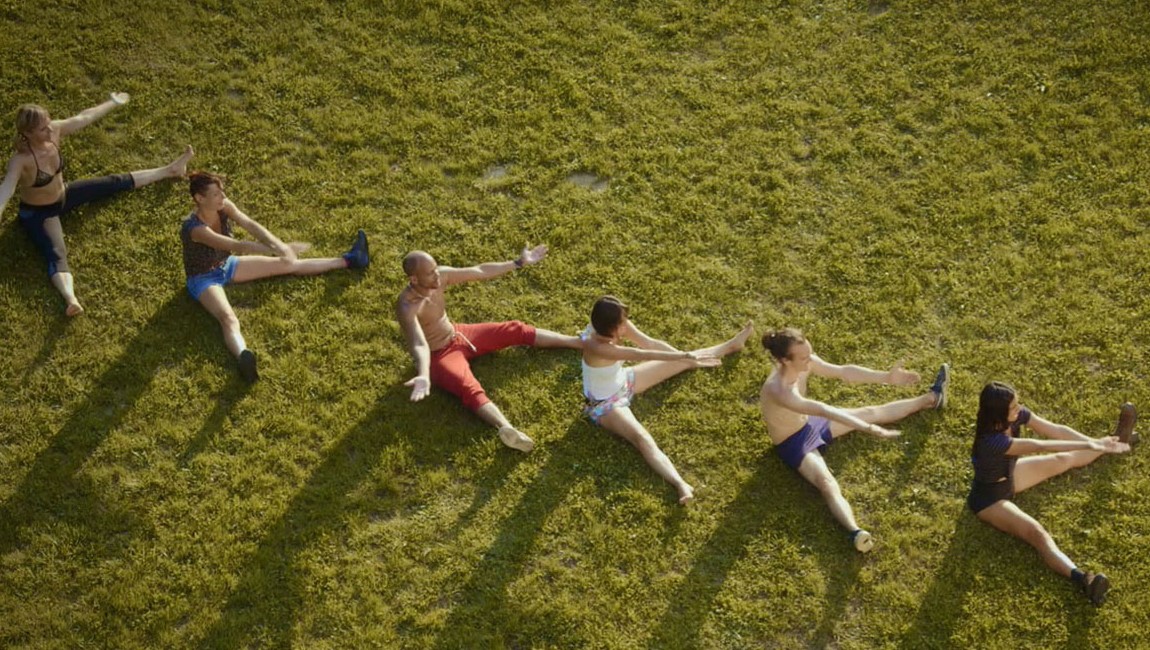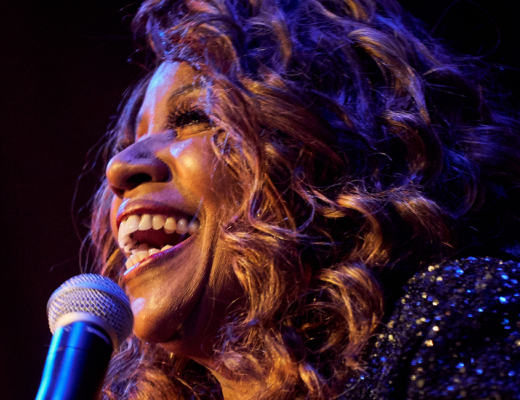There exists a sort of spectrum in female sports-centric films, with campy, comedic takes like Bring It On laying claim to one end while high-drama, anxiety-rich films like Black Swan occupy the antipodal space. One of these films showcases the competition and intensity that women endure to get to the top, and the other features Natalie Portman smoochin’ Mila Kunis. Backspot, the feature debut from DJ and drummer D. W. Waterson, seems to be shooting toward the intensity of the Aronofsky end of this spectrum — except replacing all the psycho-sexual zest with very self-serious sports movie energy — but firmly lands closer to spirit fingers territory, and not in the appealing Toros way.
Backspot follows Riley (Devery Jacobs), a dedicated cheerleader on the B-squad who navigates the pressures of her sport while also managing a bevy personal struggles, such as her romantic relationship with teammate Amanda (Kudakwashe Rutendo) and her absentee mother. Alongside her girlfriend, Riley is recruited to the elite Thunderhawks cheer squad, led by the stern and demanding coach Eileen (Evan Rachel Wood, giving young Sue Sylvester). Even before joining the Thunderhawks, we see glimpses of Riley’s anxiety, but once she joins the high-stakes world of cheer, her ticks and poor coping skills come quickly to the forefront. From excessive drinking to trichotillomania, Riley’s obsessive drive for perfection quickly begins to take a toll. But unlike in Black Swan, Waterson seems bent on orchestrating a happy ending for their suffering protagonist, much to the film’s detriment. The gum Wood’s character chomps throughout the film probably has more flavor than the film’s ultimate destination.
But Backspot‘s overly earnest and cornball plot alone doesn’t make for an unforgivable film; instead, it’s the forced nature of Waterson’s depictions of both queer relationships and anxiety that cripple their film. The inclusion of a genuine, healthy partnership between Riley and Amanda — rather than one reduced to and mined for cheap conflict — is refreshing in a tone-deaf landscape that seems to only understand queerdom in terms of coming out or persecution, but representation for its own sake is something of a dramatic dead-end. Meanwhile, the film is eager to show Riley’s mental health struggles, but Waterson resorts to a grab bag of cliched visual tricks, like spinning cameras and blurred vision, resulting in something more cringeworthy than effective. In fairness, a nuanced portrayal of anxiety is difficult to execute, particularly on a visual level, but here it’s handled with all the subtlety of a cheerleader’s megaphone.
But while Waterson’s skills of storycraft may be lacking, Backspot‘s sound design is a highlight. Given their background as a DJ and drummer, the film’s establishing rhythms and immersive soundscapes during the cheerleading and club sequences are excellent, the aesthetic of these sequences working overtime to try elevate the film beyond its failures. Unlike the over-expressive camerawork, Backspot‘s auditory experience delivers a visceral sense of anxiety, imbuing a welcome unease into the otherwise predictable proceedings. But in the end, Backspot just can’t stick its landing. Even the successful character development that is executed beneath its melodramatic affectations can’t rescue Waterson’s film from its Sparky Polastri-level routine. It’s a spirited attempt, but unfortunately one needed more practice if it truly wanted to impress.
DIRECTOR: D.W. Waterson; CAST: Devery Jacobs, Evan Rachel Wood, Shannyn Sossamon, Rudakwashe Rutendo; DISTRIBUTOR: XYZ Films; IN THEATERS/STREAMING: May 31; RUNTIME: 1 hr. 33 min.







